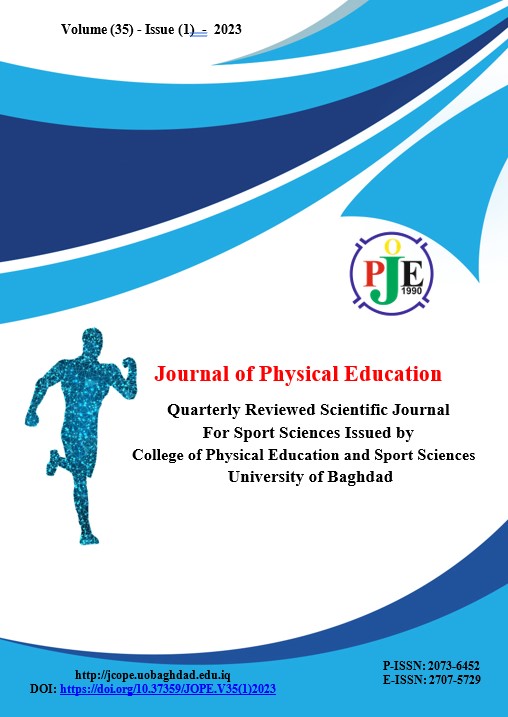Predicting skill performance in handball through optimism
DOI:
https://doi.org/10.37359/JOPE.V35(1)2023.1360Keywords:
prediction, optimism, skill performance, administrative committee, training courses, handball coaches, sport administrationAbstract
The study's aim is to determine the level of skill performance and optimism among male and female handball players in Iraq's Kurdistan Region's first and premier leagues. The importance of demographic differences in skill performance and optimism, as well as the percentage contribution of each skill and optimism to skill performance, are also discussed. In order to achieve the research objectives, the descriptive survey method was used in this study. The sample includes (12) male and female handball players who were chosen at random from (10) first-class and excellent sports clubs, with (7) clubs for men and (3) clubs for women, representing approximately (48%) of the research community. The optimism scale was used to collect data for the study, and the data was statistically treated using (arithmetic mean, standard deviation, Pearson correlation coefficient, Spearman-Brown equation). After presenting, analyzing, and discussing the results (factor analysis, t-test for one sample and two independent samples, one-sample analysis of variance, L.S.D. test, multiple regression.) and the program, (SPSS). The researchers reached a number of conclusions, the most important of which is the level of optimism among handball players, and the level of skill performance among the same members of the research sample was moderate.






 The Journal of Physical Education (JOPE) applies a Creative Commons Attribution 4.0 International license (CC BY 4.0), which lets others distribute, remix, tweak, and build upon your work, even commercially, as long as they credit you for the original creation. For more information, click the link :
The Journal of Physical Education (JOPE) applies a Creative Commons Attribution 4.0 International license (CC BY 4.0), which lets others distribute, remix, tweak, and build upon your work, even commercially, as long as they credit you for the original creation. For more information, click the link : 